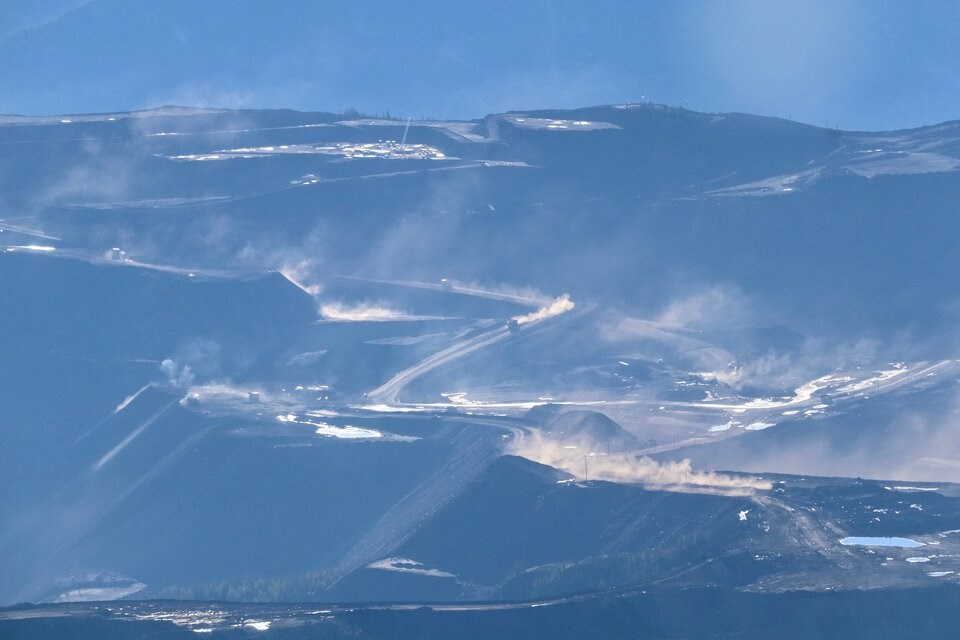A strong majority of British Columbians say mining companies should pay for the cost of cleaning up their pollution, a new poll has found.
The survey, carried out by Research Co. on behalf of the conservation group Wildsight, found 79 per cent of B.C. residents think companies responsible for damaging the environment — not taxpayers — should have to provide monetary guarantees upfront to pay for future clean-up costs.
Currently, the size of those financial guarantees (known as bonding) are based on estimates provided by mining companies, the pollsters said. Half of the B.C. respondents in the poll said they were “not very confident” the current B.C. system would protect taxpayers from paying clean-up costs.
Casey Brennan, Wildsight’s conservation director, said in a statement that the numbers are “unsurprising” when considering many B.C. residents are struggling financially.
“British Columbians are worried they’re going to be left with the bill to clean up this mess, and they want to see their government doing more to protect them from that risk,” Brennan said.
Michael Goehring, president and CEO of the Mining Association of B.C. said the poll presented an “inaccurate portrayal of the industry” and included questions crafted in a way that “skewed” answers “to align with Wildsight’s agenda.”
Goehring said that since 2015, B.C. mines have increased reclamation securities held by the province to more than $3.7 billion.
“We expect to close the gap between the estimated reclamation liability and reclamation security within two years,” Goehring said in a statement.
Mining pollution to be heard at International Joint Commission
In a study published in November 2023, the U.S. Geological Survey found multi-decade per cent changes of selenium in Elk River (which flows from B.C. into Montana) were the largest ever recorded in a peer-reviewed study — anywhere.
A trace element for life, too much selenium is toxic and can be especially damaging for egg-laying creatures, such as fish and birds. By filling the role of sulphur in proteins, selenium is known to trigger deformities, though biologists say its spectrum of effects is not clear.
Last month, Canada and the United States requested an intervention from the International Joint Commission (IJC), a trans-boundary body tasked with regulating rivers and lakes that span both sides of the border. Their request: carry out a reference study and recommend solutions for mining pollution in the Elk and Kootenay rivers.
A week later, a report commissioned from Wildsight found the future costs of cleaning up pollution in B.C.’s Elk Valley — home to the largest concentration of coal mines in Canada — could climb to $6.4 billion over 60 years. That’s three times the $1.9 billion financial guarantee currently in place to guard against the public footing future cleanup costs.
The report focused on four metallurgical coal mines owned by Teck Resources, a company that has been penalized on multiple occasions for exceeding Canadian water standards (one case led to a nearly $16-million fine). Teck is in the process of selling a majority of shares in the coal mines to Swiss-based Glencore for $9.4 billion.
A combined 81 per cent of those polled said they either “somewhat” or “strongly agreed” that the Canadian government require Glencore provide financial guarantees for the full amount of any cleanup cost.
British Columbians pick top concern
The pollster also asked respondents to name one issue that could impact the province in the coming year that is most on their mind today. Cost of living was the most popular choice at 21 per cent, followed by housing affordability at 19 per cent, and health care at 11 per cent.
Another seven per cent cited climate change as a top worry. At two per cent each, carbon tax and immigration sat at the bottom of British Columbians’ list of worries, the poll found.
The survey was carried out among more than 1,500 adults in a statistically weighted online survey between March 26 and April 4, 2024. It carried a margin of error of plus or minus 2.5 percentage points.
Editor's note: This story has been updated with a statement from the Mining Association of B.C.





